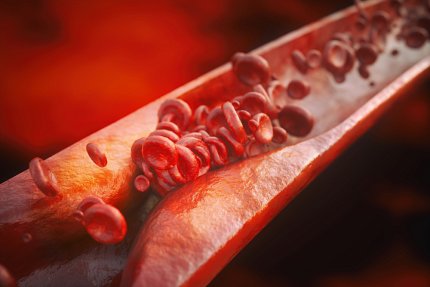Research Sheds Light on Link Between Covid-19 and CVD Risk

Photo: CREVIS/SHUTTERSTOCK
SARS-CoV-2, the virus that causes Covid-19, can directly infect the arteries of the heart and cause the fatty plaque inside arteries to become highly inflamed, increasing the risk of heart attack and stroke, according to an NIH-funded study.
The findings, published in Nature Cardiovascular Research, may help explain why certain people who get Covid-19 have a greater chance of developing cardiovascular disease, or if they already have it, develop more heart-related complications.
In the study, researchers focused on older people with fatty buildup, known as atherosclerotic plaque, who died from Covid-19. However, because researchers found the virus infects and replicates in the arteries no matter the levels of plaque, the findings could have broader implications for anybody who gets Covid-19.
The body’s immune system sends in white blood cells known as macrophages to help clear a virus. In the arteries, macrophages also help remove cholesterol. When arteries become overloaded with cholesterol, they morph into foam cells.
The researchers took tissue from the coronary arteries and plaque of people who had died from Covid-19 and confirmed the virus was in those tissues. Then they took arterial and plaque cells—including macrophages and foam cells—from healthy patients and infected them with SARS-CoV-2 in a lab dish. They found the virus had also infected those cells and tissues.
Additionally, the researchers found that SARS-CoV-2 infects macrophages at a higher rate than other arterial cells. Cholesterol-laden foam cells were the most susceptible to infection and unable to readily clear the virus. This suggested that foam cells might act as a reservoir of SARS-CoV-2 in the atherosclerotic plaque. Having more build-up of plaque, and thus a greater number of foam cells, could increase the severity or persistence of Covid-19.
Researchers then documented the release of molecules, known as cytokines, that are known to increase inflammation and promote the formation of even more plaque. The cytokines were released by infected macrophages and foam cells. The scientists said this may help explain why people who have underlying plaque buildup and then get Covid-19 may have cardiovascular complications long after getting the infection.
This study was funded by NHLBI, NIAID and NIDDK.
